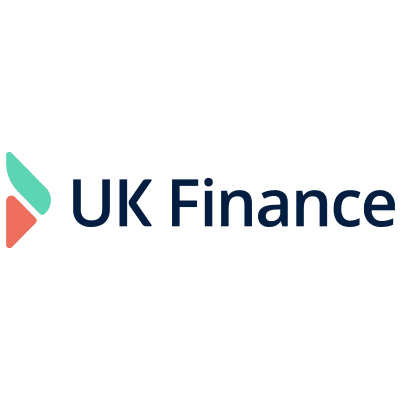What Is a Debenture?
At its most basic, a debenture is a document that acknowledges debt and is agreed between a lender and a borrower, often referred to as a security document. It will usually include some defined parameters on how the company’s assets will be used to secure finance.

A debenture has to be filed at Companies House and essentially gives some security to the lender that if the company defaults on repayments and has to sell assets, their rights to those assets are clearly defined. This definition is the most commonly come across for businesses in the UK.
However, the term does mean something different depending on the area you’re in so you may encounter it in an unfamiliar setting and – understandably! – get a bit confused. As a UK based broker, we’ll predominantly be focusing on the UK meaning.
When is a debenture required?
If you are entering into a full-book invoice finance facility, a lender will always require a debenture. In the scenario that your customer ceases to trade and you default on your facility as a result, it ensures that your funder is able to seek remuneration from you. This ranks above other unsecured creditors for repayment (or, put simply, other people who owe you money).
For spot or selective invoice factoring, no debenture or personal guarantee is required for invoices up to the amount of £50,000.
Be aware that due to the public nature of debentures being registered at Companies House, even your confidential invoice discounting facility will be public knowledge should any of your customers search your business on the Companies House website.
Debentures are always required for construction businesses with invoices in excess of £50,000. This is due to the nature of the industry and the higher rate of businesses closing or ceasing to trade. This applies even if you are in a spot factoring facility.
Types of debenture
Secured
This is the one we’ve already mentioned, where assets are leveraged for security against a loan. Assets will be sold off to pay debt in the event of a default on repayments.
There is such a thing as an “unsecured debenture”, however they are very rare to encounter in UK business. They rely solely on the creditworthiness of a business, and funders will have to wait in line with other creditors for payment should the business fail. Due to the higher risk without security, there will usually be a personal guarantee required and interest rates are higher.
Redeemable
An easy way to remember this type is how it is essentially a fixed term loan. So this type relates more to situations where you take out a business loan, rather than invoice finance. The borrower is legally obliged to repay the lender by a set date either in a lump sum or instalments as outlined in the loan agreement itself. So it must be ‘redeemed’ by the agreed date.
Irredeemable
As you may have guessed, this is converse to a redeemable debenture. There is no set end date for repayments which means that the company continues to borrow and pay until it goes into liquidation and can no longer make payments. A business overdraft is a classic example of the irredeemable type.
Types of debenture charge
Fixed
You will usually encounter this charge if the asset being used in a debenture is property. With this charge , you cannot sell the asset without the funder’s permission as they have control of its use. Any proceeds from such a sale go to the funder. Alternatively, funds can go towards the purchase of a new asset which then takes the place of the previous one and the funder will place a fixed charge against it.
Floating
Unlike with a fixed charge, a floating charge sits above the assets that it applies to, allowing you to use them in the course of business as you normally would. The floating charge can be applied to a wider variety of assets including raw materials, fixtures in your building or even intellectual property belonging to the business. You are also able to move or sell these assets during your usual course of business, as it’s only when crystallisation events occur that the charge will become fixed in order to control how you deal with them.
If your business already has a debenture (with a floating charge), this doesn’t necessarily mean you are ineligible for invoice finance. Your bank will need to provide a waiver to allow the funder to take first charge on book debts.
What does a debenture mean for your business?
If you have a debenture (most likely a secured one) then you have agreed that your lender has control of certain assets. They decide the fate of them in the event of you being unable to keep up repayments, and will sell them to raise the funds needed to pay the debt you owe. This could mean that your company will be placed into liquidation.
Advantages
Disadvantages
Debentures in the UK and in the USA
We mentioned earlier that the term debenture can mean different things to different people. Most notably, this difference can be seen in it being used in the UK and in America. Instead of being a tool for security against company assets, the USA uses ‘debenture’ to mean an unsecured corporate bond which businesses can use as a way to raise capital.
There is no collateral involved with the American version, it all rests on the reputation of the business. This means that investors have only a trust and belief in the business that it can repay debts.
Debentures in the USA take two forms: convertible and non-convertible. For businesses who are looking for lower interest rates and for their investors, the former is the most attractive option. The convertible debenture will convert over time into equity shares in the company who has issued it. Conversely, the non-convertible debenture doesn’t convert into equity shares and is the more expensive form of raising capital due to higher interest rates.
Debenture or personal guarantee?
If you are entering into an unsecured arrangement, you may be required to offer a personal guarantee instead. This means you, as the company’s director, offer your personal assets as security in the event that the company cannot pay its debts.
With personal guarantees in invoice financing, it’s usually capped at a percentage of the funding line. As your funder is essentially purchasing your ‘good debt’ (i.e. it’s a given that your customers have a good paying relationship with you), your personal guarantee is much less likely to be called upon than for a loan. Read more about personal guarantees here.




